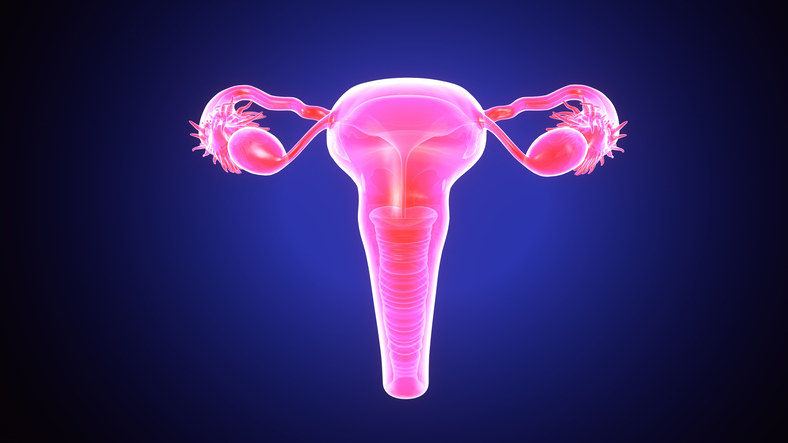Jessica* said she developed an itchy vagina and a new discharge with a curious smell shortly after she started dating, and having sex with, someone new.

"I had some spotting (light vaginal bleeding) straight after sex and then I just got this smell, itch and flare-up after sex, with this pink or sometimes yellow discharge," the 30-year-old Melbourne woman told BuzzFeed News.
She was diagnosed by her doctor with bacterial vaginosis (BV), a complicated condition that's difficult to diagnose, harder to treat, and profoundly affects the health and wellbeing of Australian women.
BV is a bacterial infection that affects approximately 12% of Australian women every year, causing discomfort, itching, abnormal odour, and distinctive discharge. In fact, it is the leading cause of abnormal vaginal discharge in women of reproductive age.
"I was with this brand new partner and I had to go through this really unsexy process of not having sex for a week and putting this thick gooey cream inside myself," Jessica said. "I felt dirty and ashamed and gross about myself."
When the BV returned after she resumed sexual activity, Jessica was prescribed antibiotics which in turn led to a case of thrush (a yeast infection caused by the overgrowth of Candida albicans yeast).
"So now it is this cycle," she said. "I told some friends about it and two of them were going through literally the same thing at that time."
Jessica said she's "suspicious" of her sexual partner.
"I'm like, 'How can it not come from you mate? I hadn't had any symptoms before we had sex and you're brand new'."
Emerging research shows Jessica's suspicions might be warranted.
A team of Melbourne researchers are now on the way to (finally) pinpointing the cause of BV and developing an effective treatment for this persistent and disruptive condition – with the help of some willing boyfriends.

Dr Catriona Bradshaw, a sexual health physician and epidemiologist heading the research project Step Up at Melbourne Sexual Health Centre (MSHC), said BV needs to be addressed as more than a simple bothersome infection.
"Increasing evidence shows it increases the risk of pelvic inflammatory disease, it increases the risk of all the STDs, increases the risk of HIV, of miscarriage, and premature delivery," Bradshaw told BuzzFeed News.
BV is a poorly-investigated condition that is difficult to diagnose due to the fact that it is an infection with more than one microbe and diagnosis relies on microscopic techniques to identify the infection in a woman's vaginal microflora.
"A lot of private laboratories really don't provide good diagnostic services to diagnose BV accurately in the community," she said.
BV has historically been dismissed by clinicians as an "imbalance", Bradshaw said, and treated in the same way as thrush, "so just a bit of a disturbance and it's no big deal".
Angie*, a 28-year-old Sydney woman who was diagnosed with BV in February, said she had never heard of the condition before and had to see three clinicians in order to get an accurate diagnosis.
"I thought it was thrush for quite a long time but definitely the symptoms were more severe, it was that horrible grey liquid kind of colour and consistency and also the smell was vile, you could smell it through your clothes," Angie told BuzzFeed News.
Bradshaw has been investigating BV for 13 years and has found 50% of those diagnosed are experiencing a recurrence of infection three to six months after treatment.
When Bradshaw and her research team looked at the factors associated with BV, the results were surprising.
"We found it was women who were exposed to the same sexual partner, the same one they'd been with at the time they took the antibiotics, they had a greatly increased risk."
This led Bradshaw to believe that there was a sexually transmitted element to BV. There is evidence from research to support the theory that BV is a sexually transmitted infection.
In 2001 a large U.S. study was conducted to examine the link between BV and adverse pregnancy outcomes, and the researchers reported that the infection could be found in women who had never had sex.
This research threw the theory that BV could be sexually transmitted into disrepute, but Bradshaw believes the results were distorted by the self-reporting techniques used.
Bradshaw conducted a study at the MSHC in 2005 that contradicted the US results, saying "we found our BV was very much in women who'd engaged in penile-vaginal sex".
Several studies have been conducted that treat male partners at the same time as infected women, but most had limited success and concluded that treatment of men was not clinically beneficial.
"The trials that were done 30-odd years ago were pretty badly done ... What I think is happening is that you need to use both an oral and a topical antibiotic if these bugs are sitting on the skin of the penis," she said.
Step Up is now being run through the MSHC and treating male partners at the same time as BV-affected women with both oral and topical antibiotics. The preliminary trials have shown promising results.
Family Planning NSW medical director Deb Bateson said women often attend who have noticed a fishy odour and discharge.

"But we also have picked it up in women who don't know they have it when they've come in for cervical screening or an intrauterine device insertion," Bateson told BuzzFeed News.
But Bateson said patients who were sexually active with women, and patients who hadn't been sexually active, also presented with the condition, so men couldn't shoulder all of the blame for its transmission.
The condition was stigmatised and made patients feel ashamed of their bodies and sexual attractiveness, she said.
"We have women embarrassed about being on transport and embarrassed about being in front of their boyfriends."
A visual inspection and swab test was usually enough to discern whether the patient was suffering from another STI, thrush or BV, she said.
"We will see a lot of women self-diagnosing this as thrush and treating it with over-the-counter thrush medication which of course does nothing for BV."

The good news is antibiotics effectively treat the condition, but the condition can return.
"I tested positive for BV and I've been on antibiotics for a week and it has cleared up," Hannah* told BuzzFeed News.
The 29-year-old touched down in Melbourne after five months of travelling around Asia and noticed she was itchy and that her vaginal discharge was "a different consistency than normal and smelled unusual".
"It really knocks your self-confidence and you feel a bit dirty," she said.
Hannah had had unprotected sex with someone the week before and was concerned it was an STI so she went to get a pap smear.
"Now I'm just worried it is going to come back again."
*Names changed to protect privacy.

